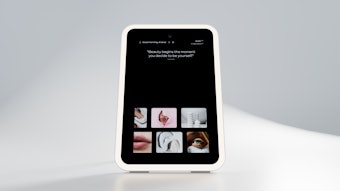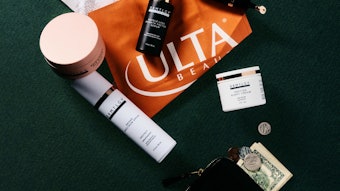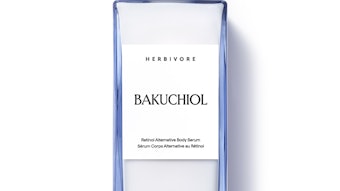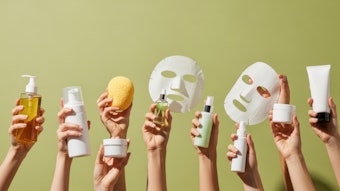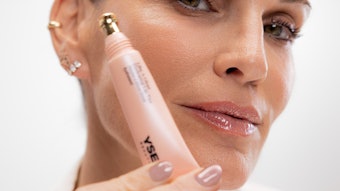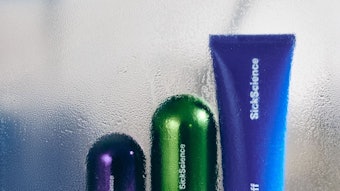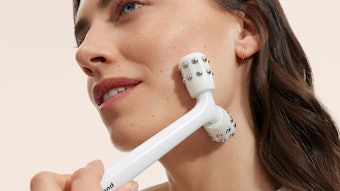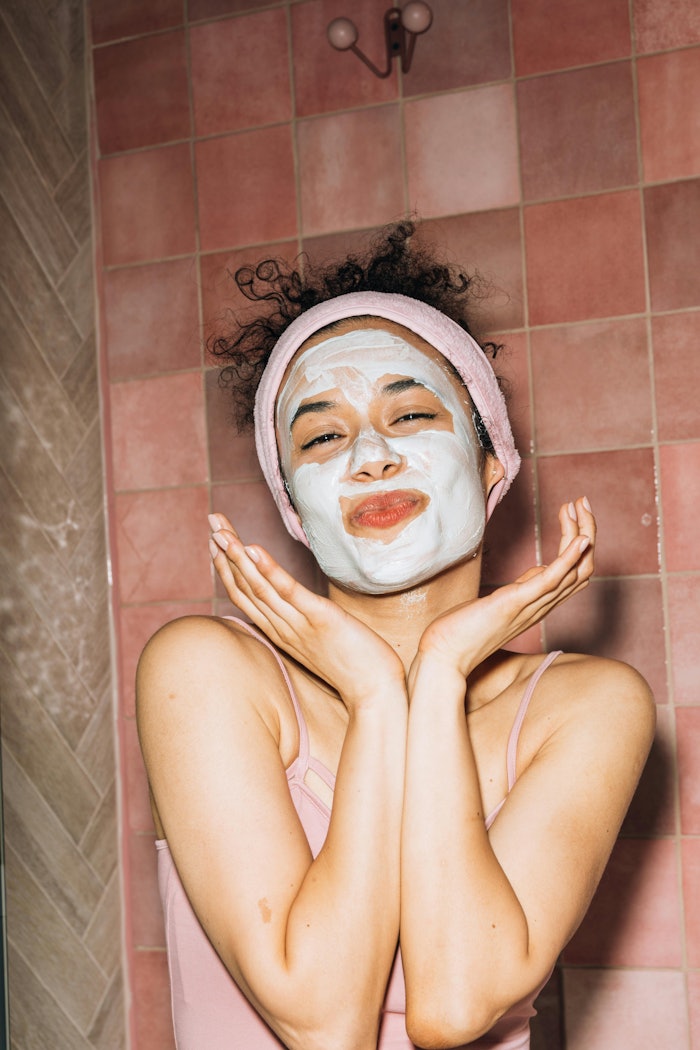
U.S. female beauty buyers feel their facial skin is somewhat healthy (65%) to very healthy (23%), while 84% eagerly purchase skin care products to address specific troubled skin issues when they do arise, according to The Benchmarking Company’s August 2025 primary online study of 3,460 female and 239 male beauty and personal care buyers.
Based in sun-seared San Diego, Denise Herich is co-founder and managing partner at The Benchmarking Company. The Benchmarking Company provides marketing and strategy professionals in the beauty and personal care industries with need-to-know information about its customers and prospects through custom consumer research studies through its 250,000+ female PinkPanel database, focus group, and consumer in-home use testing (IHUTs) for claims substantiation and risk mitigation.
This article is only available to registered users.
Log In to View the Full Article
U.S. female beauty buyers feel their facial skin is somewhat healthy (65%) to very healthy (23%), while 84% eagerly purchase skin care products to address specific troubled skin issues when they do arise, according to The Benchmarking Company’s August 2025 primary online study of 3,460 female and 239 male beauty and personal care buyers.
This study uncovers the concerns consumers currently experience with their facial and body skin, the products they’re using now to combat them, and the innovative solutions they’re seeking from the beauty and personal care industry to help solve them. As females represent the majority of respondents, data will largely reflect the female point of view but will highlight gender response differences of note.
Understanding Skin Care Concerns and Purchase Priorities
 F-1. Top skin care priorities for consumersThe Benchmarking Co.
F-1. Top skin care priorities for consumersThe Benchmarking Co.
While 49% are somewhat satisfied with the products they use on their face, 29% feel neither satisfied not unsatisfied—a “meh” reaction—when contemplating the efficacy of their current regimen. Nine percent feel very satisfied, 10% feel somewhat dissatisfied and 2% feel very dissatisfied.
When she’s seeking solutions to facial or body skin care problems (F-1), what matters most to her purchase decision are proven efficacy in the form of consumer/clinical claims (46%), fast results (34%), dermatologist tested or recommended (33%), and value for the money (31%).
While a product’s ability to deliver multi-use benefits is important to 18% of women, only 9% of male respondents found multi-use to be important.
Key Factors Affecting Skin Health: Stress, Hormones and Lifestyle
 T-1. Consumers’ skin health beliefsThe Benchmarking Co.
T-1. Consumers’ skin health beliefsThe Benchmarking Co.
Weather changes were an important skin health contributor to 44% of women, but only 29% of men felt weather changes mattered.
Top Skin Care Concerns, Tools and Products People Are Using
 Consumers are using a wide variety of tools, including quartz/stone rollers (33%).Kaboompics.com at Pexels
Consumers are using a wide variety of tools, including quartz/stone rollers (33%).Kaboompics.com at Pexels
They’re using a wide variety of tools, in addition to skin care products, to help alleviate some of those issues. These tools include quartz/stone rollers (33%), ice rollers (30%), dermaplaning tools (28%), cleansing devices (28%), exfoliating devices (28%), facial steamers (25%), and massaging rollers (24%), among other tools.
To maintain the health of her skin, 78% of women say they currently use sunscreen, 59% use hydrating serums or masks, 52% use eye creams or eye patches, 49% use micellar waters/gentle cleansers, 44% use vitamin C skin care products, and 41% are using pimple patches.
Emerging Skin Care Trends: Retinol Alternatives and Must-Try Products for Women and Men
 T-2. Facial skin care use and interestsThe Benchmarking Co.
T-2. Facial skin care use and interestsThe Benchmarking Co.
Others high on her “must try” list include anti-inflammatory or calming treatments (69%), hydroquinone or hydroquinine alternatives (69%), clarifying treatments (67%), spot correcting products and barrier creams (both 65%), and niacinamide products (58%).
For men, hydrating masks or serums are high on his must-try list, with 52% wishing to do so. Only 32% of men say they use hydrating serums or masks currently.
Top Body Skin Concerns: Dryness, Firmness and More
Dry skin (63%), loss of firmness (52%), stretch marks (48%), cellulite (46%), ingrown hairs (38%), razor bumps (37%), hyperpigmentation (34%) and uneven skin tone (32%) top females’ lists for body skin issues they’ve experienced in the past year.
Further down her list are body acne issues, with 23% experiencing back acne (vs. 40% of men) and 17% having chest acne (vs. 24% of men). Body odor is an issue, with 28% of women (vs. 32% of men), and 24% say oily skin is an issue (vs. 42% of men who say oily skin is an issue).
Body Care Habits and Product Preferences
To maintain the health of the skin on her body, 78% regularly use body creams and lotions, 44% use body exfoliants, 37% use ointments, 33% use clinical-strength deodorants/antiperspirants, 28% have tried an all-over deodorant and 21% use antibacterial washes.
Twenty-seven percent of men currently use exfoliators, but 58% are interested in trying them. Only 23% of men have tried a clinical-strength deodorant/antiperspirant product, but 63% are interested in trying them.
Interest in Body Skin Care: Top Products and Opportunities
 T-3. Body skin care use and interestsThe Benchmarking Co.
T-3. Body skin care use and interestsThe Benchmarking Co.
Leading the list of products women are interested in trying (T-3) are caffeine-based firming creams (79%), cellulite creams (77%), body serums (75%), body masks (75%), leave-on exfoliation products (74%), massage-activated sticks or oils (72%), and pH-balanced body cleansers (71%).
Willingness to Try New Skin Care Innovations and Consumers' Patience for Results
If a brand claimed to improve her skin concerns in a new way, 67% of women say they’d very likely be willing to try that new product. Some of the new innovations she’d be willing to try include products designed to promote cell longevity (76%), products formulated with exosomes (74%), microbiome support for skin (71%), bioactive peptides (69%), epigenetics (59%), neurosensory skin care that impacts mood (58%), and products with novel ingredients such as marine-derived actives or PDRN (52%).
Whether it’s a new facial skin or body skin care product, time to efficacy is of the essence. Twenty-seven percent of females (vs. 38% of males) give a skin care product 1-2 weeks before deciding if it works or not.
Thirty-eight percent of females give that product three to four weeks before judgment (vs. 39% of men), and only 33% of women (and 22% of men) are willing to wait more than a month before seeing results.
About the Author
Based in sun-seared San Diego, Denise Herich is co-founder and managing partner at The Benchmarking Company. The Benchmarking Company provides marketing and strategy professionals in the beauty and personal care industries with need-to-know information about its customers and prospects through custom consumer research studies through its 250,000+ female PinkPanel database, focus group, and consumer in-home use testing (IHUTs) for claims substantiation and risk mitigation.
